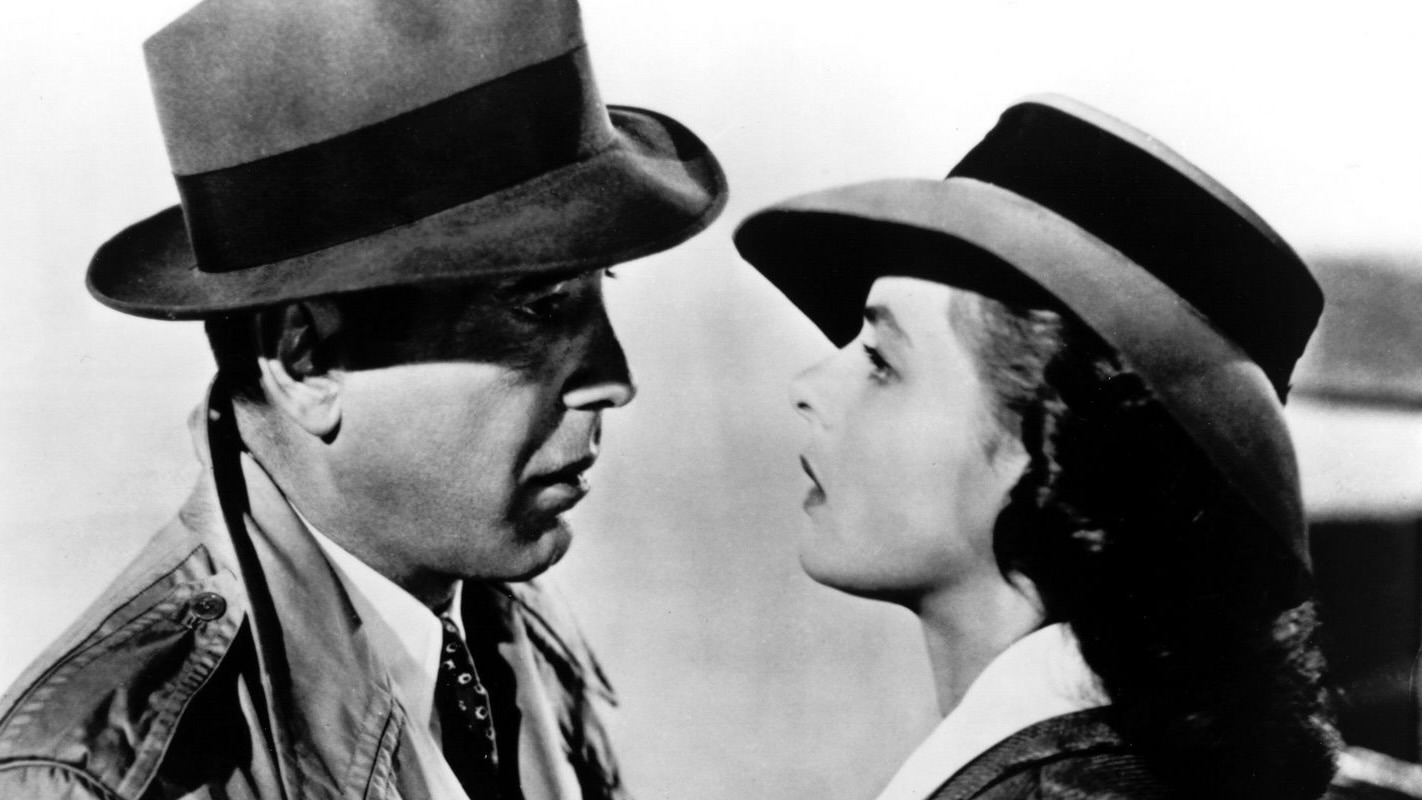The Fundamental Things Apply: Reflecting on Casablanca as Time Goes By

Photo Credit: Casablanca (1942); image courtesy of Warner Bros. from MovieStillsDB.com
Disclosure: This post may contain affiliate links, meaning Beautiful Christian Life LLC may get a commission if you decide to make a purchase through its links, at no cost to you.
Writer Julius Epstein claimed it had “more corn than the states of Kansas and Iowa combined. But when corn works, there’s nothing better.”
He was talking about his screenplay for an unassuming little wartime romance released way back in 1942. The film was Casablanca—top pick on the American Film Institute’s list of 100 Greatest Love Stories.
It might be a good idea to catch this beloved favorite around Valentine’s Day this year—especially with all the new extras available. In 2012, Warner Bros. honored the film’s 70th anniversary with a three-disc Blu-Ray and DVD including fourteen hours of bonus material, a theatrical poster, and a 62-page book.
Best Picture
Released at the height of World War II, the classic, starring Humphrey Bogart and Ingrid Bergman, has amassed a staggering array of accolades:
- Nominated for eight Oscars, it won three: Best Picture, Best Director, and Best Screenplay.
- In 2006 the Writers Guild of America named it the best screenplay ever written.
- Critic Leonard Maltin calls it “the best Hollywood movie of all time.”
- Roger Ebert: “Probably on more lists of the greatest films of all time than any other single title, including Citizen Kane.”
- Leslie Halliwell: “One of the outstanding entertainment experiences of cinema history.”
- Casablanca appears on eight of the American Film Institute’s “100 Greatest” lists: greatest love stories (No. 1); greatest movie heroes (Bogart’s “Rick Blaine,” at No. 4); greatest movie songs (“As Time Goes By,” at No. 2—second only to “Over the Rainbow”); and all-time greatest films (No. 2 on the 1998 list, 3 on the revised list from 2007).
- And the film holds six spots on the AFI’s 100 greatest movie quotes—twice as many as any other movie. Famed lines from the film include “We’ll always have Paris,” “Round up the usual suspects,” and “I think this is the beginning of a beautiful friendship.”
- That last line concludes what Videohound movie guide calls “the best closing scene ever written.” Yet even that, like much of the film, was a work in progress.
Everybody Comes to Rick’s
Casablanca was adapted from a play called Everybody Comes to Rick’s, purchased by producer Hal Wallis for $20,000—at that time, the most ever paid for an unproduced play. The script was penned by twins Julius and Philip Epstein and by Howard Koch, with much of it emerging from the typewriter while the film was still being made. Wallis wrote the final “beautiful friendship” line well after shooting wrapped, and Bogart dubbed it in a month later.
The film’s late 1942 release was timed to coincide with the Allied invasion of North Africa—and the subsequent recapture of Casablanca, which was under Nazi control in the film. There was some thought given to adding a final scene with Blaine and Captain Renault (Claude Rains) approaching the city on an Allied ship. Thankfully, Rains was unavailable, and David O. Selznick—who owned Bergman’s contract—insisted “it would be a terrible mistake to change the ending.”
You Must Remember This
A few other interesting pieces of Casablanca trivia include:
- Dooley Wilson, playing the café’s pianist, was the only cast member who’d actually been to Casablanca.
- Wilson, Bogart, and Joy Page were the only credited cast members born in the United States.
- Warner Bros. claimed that thirty-four nationalities were represented in the cast and crew. Many extras were European refugees, and several reportedly shed tears during the famous “battle of the anthems” scene.
- According to the Internet Movie Database, the Casablanca script was sent to several major studios in the 1980s—under its original title. Many studio readers failed to recognize the story and professed disinterest, complaining that it was “not good enough” and “too dated,” with “too much dialog” and “not enough sex.”
More information on this classic film, including additional trivia, is available at IMDb.com and TCM.com.
Here’s looking at you, kid.
Reprinted courtesy of the Williamsport Sun-Gazette, www.sungazette.com.
Related Articles:
- 14 for the 14th: Romantic Movies for Valentine’s Day
- 6 Ways a Christian Husband Cherishes His Wife
- 6 Ways a Christian Wife Cherishes Her Husband
- The Importance of Compatibility in Romantic Relationships
- The Element of Physical Attraction in Romantic Relationships
- The Importance of Male Leadership in Romantic Relationships

